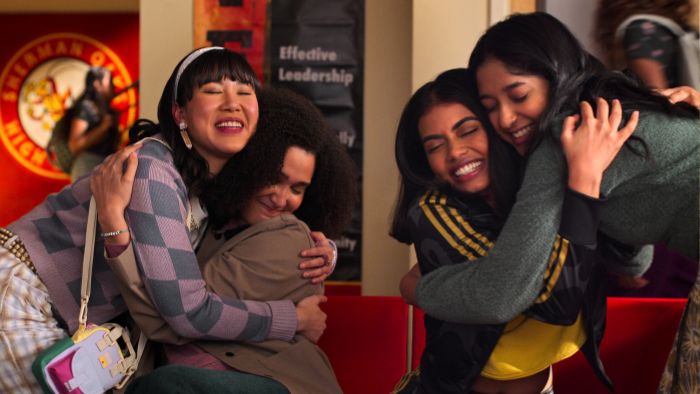On the surface, Mindy Kaling’s “Never Have I Ever“ is the coming-of-age story of 15-year-old Devi Vishwakumar (Maitreyi Ramakrishnan) from Sherman Oaks, California. She’s just had one of the hardest years of her life, as her dad suddenly died from a heart attack at her high school band recital, leaving her to adjust to life with her strict mother, Nalini (Poorna Jagannathan), and her newly immigrated, older cousin, Kamala (Richa Moorjani). To make matters worse, Devi isn’t popular; she’s constantly battling her frenemy, Ben (Jaren Lewison), and desperate to lose her virginity to high school swim team captain, Paxton (Darren Barnet).
However, upon closer look, the Netflix show is about self-identity, grief as another form of love, and both chosen and blood family. “Never Have I Ever” is really an ode to life—its joys, its challenges, its nuances. The show’s main character just happens to be Indian American, but “NHIE” doesn’t shy away from Devi’s identity or culture.
The conversations surrounding representation are kind of tired to me. To be clear, it matters—it always has, but for me, it is by no means the end goal. Representation is less about seeing myself in mainstream media (though, of course, this visibility can be meaningful), and more about engaging with these works and reflecting on whether or not they’re a fair portrayal of those they claim to represent. And to me, “Never Have I Ever” is just that.
The show has been met with a fair amount of criticism for problematic storylines, from using a character’s weight and eating habits as a fatphobic punchline to the blatant Islamophobia in its first season. Though Kaling has never addressed these criticisms, she has also never shied away from the show’s imperfections. “NHIE” comes alive in its controversial portrayal of…
Read the full article here





